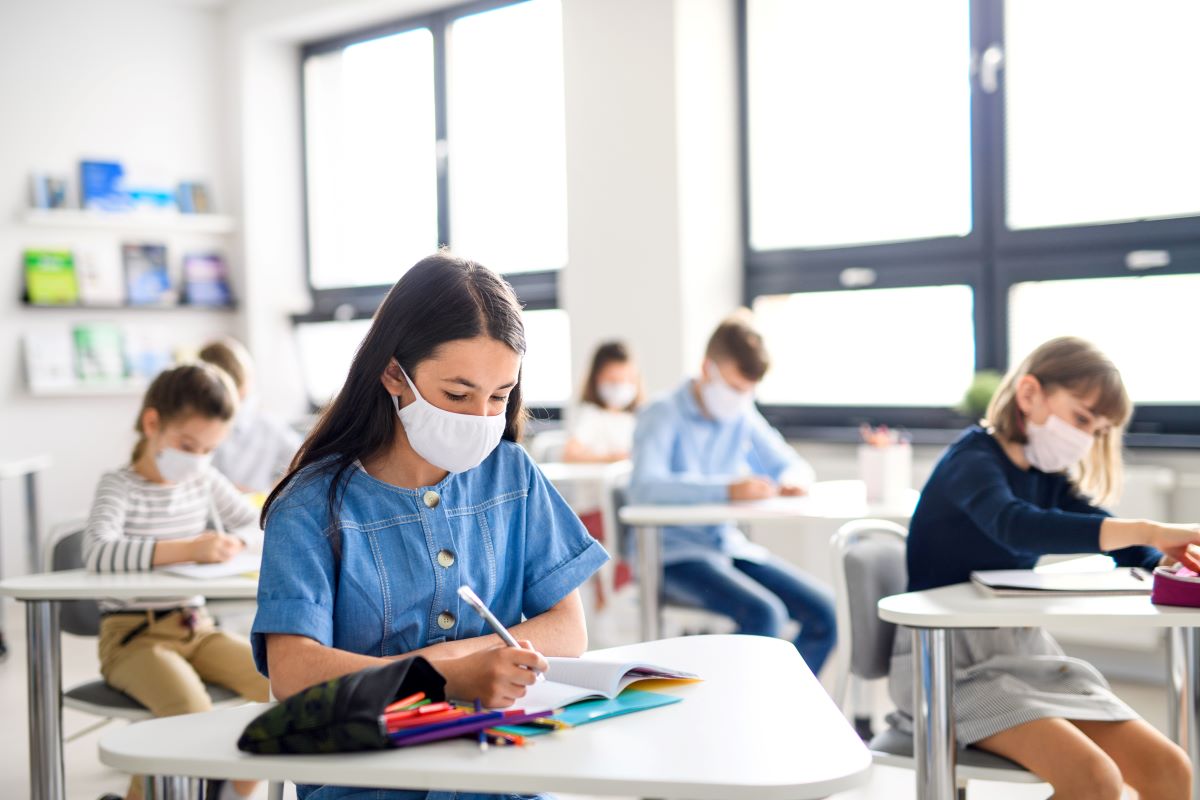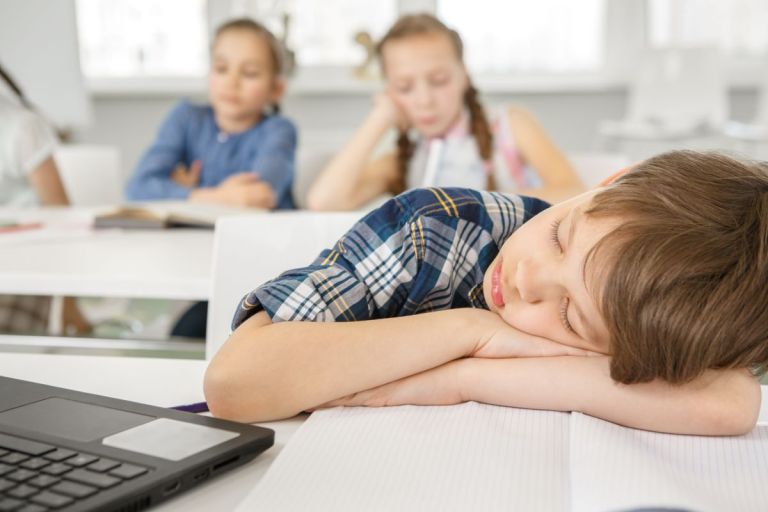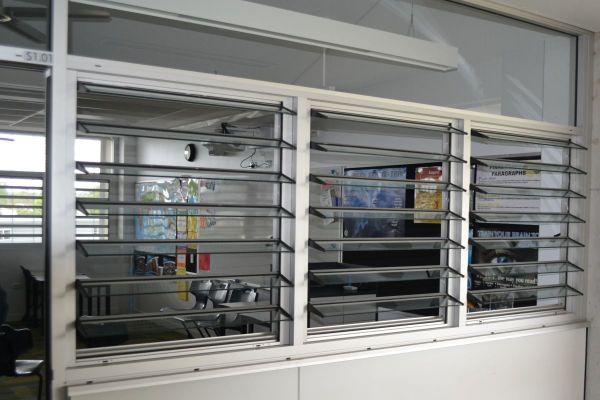



We are delighted to have been awarded the AOV’s on the Redevelopment of Pacific House in the heart of Melbourne CBD. The newly refurbished building will house 3 levels of restaurants.
This project will see 60+ AOV’s to be used for both smoke and day to day ventilation. The SE Controls OS2 SHEVTEC controllers with UPS/battery back-up will be utilised, controlling the AOV’s from a BMS signal for day to day natural ventilation and FIP signal to fully open the vents on fire.

The health of our students as become a much discussed subject of recent months due to COVID-19. Coronavirus is thought to be airborne, particles known as aerosols when a person coughs or sneezes can float around an enclosed room for hours. Think of our classrooms, with there closed windows and doors, occupied to the limit by students all breathing in the same aerosol laden air. It is easy to see how one person with Coronavirus can infect 30 people.
Classrooms around Australia can register up to four times the recommended level of carbon dioxide. Recommended amounts of CO2 should measure under 1000ppm for students in the learning environment yet classrooms in Australia regularly record CO2 levels of more than 4000 ppm (UNSW Built Environment Study).
Studies in recent years have shown that fresh air is an essential element of an effective work and learning environment and can help improve the performance levels and health of teachers and students. Despite this, many schools are still reliant on air conditioning units or manually operated windows to regulate the temperature of classrooms and to ventilate the building which can lead to a number of problems in terms of health and productivity.
Classrooms hold a large number of occupants compared to room size – a large number of students equals a high level of pollutants. Students breathe out carbon dioxide and introduce biological contaminants into the room.
Poor ventilation not only contributes to a poor learning environment, it also increases the likelihood of illness and therefore absence. Without fresh air, the contaminates in the room such as dust and carbon dioxide are simply recirculated along with germs and illnesses. This leads to a lack of oxygen which makes students feel drowsy and also helps the spread of coughs and viruses. This in turn increases the likelihood of illnesses such as asthma and some skin irritations which keep students off school and can have long term effects on health.
Natural ventilation in schools is especially important currently while Australia continues to battle the spread of Coronavirus. Without adequate ventilation, microbes remain in the environment so if one student in the classroom falls ill, the chances are most of the students in that room will become ill also.
“WHO, together with the scientific community, has been actively discussing and evaluating whether SARS-CoV-2 may also spread through aerosols in the absence of aerosol generating procedures, particularly in indoor settings with poor ventilation.”
How many times do you hear people say they ‘just need a bit of fresh air’? It happens in all aspects of work and personal life, fresh air helps people think straight and refocus. That’s the benefit of fresh air and is why classrooms that are properly ventilated produce better results for students.
Studies in the US, Spain, The Netherlands and Scandinavia have proven the benefits of ventilation for academic performance as students and staff are better able to maintain concentration and retain information.

Air conditioning units are a very expensive way of creating a poor learning environment as they use a lot of energy and circulate stale air. A typical scenario in a school classroom on a hot day is that the teacher will close the windows and doors and turn on the air conditioning without any ventilation. The pollutant level inside the classroom increases substantially.
Naturally ventilated windows are a cost-effective method of introducing fresh air into the classroom thus reducing energy usage, improving health and the learning environment. Automated windows monitor and maintain the temperature and humidity of the room and open to allow fresh air in when required.

This can, of course, be done manually but this requires teaching staff to focus on the environment and to stop what they are doing to open or close windows which is unlikely to happen in a busy learning environment where a curriculum needs to be delivered effectively in a short amount of time. The requirement for an automated, intelligent monitored ventilation system is imperative in improving the health, learning and outcomes of Australia’s student population.
Blue Squared is a family run business with over 30 years’ industry experience. We work in partnership with clients to create modern, sustainable ventilation systems using the latest innovations in design and technology to create an effective learning environment for young people. We realise that every school is unique so each of our solutions is bespoke designed to address the specific needs of the client. To discuss how we can help you achieve your passive ventilation goals, get in touch on 1300 85 12 12 or visit our contact page.